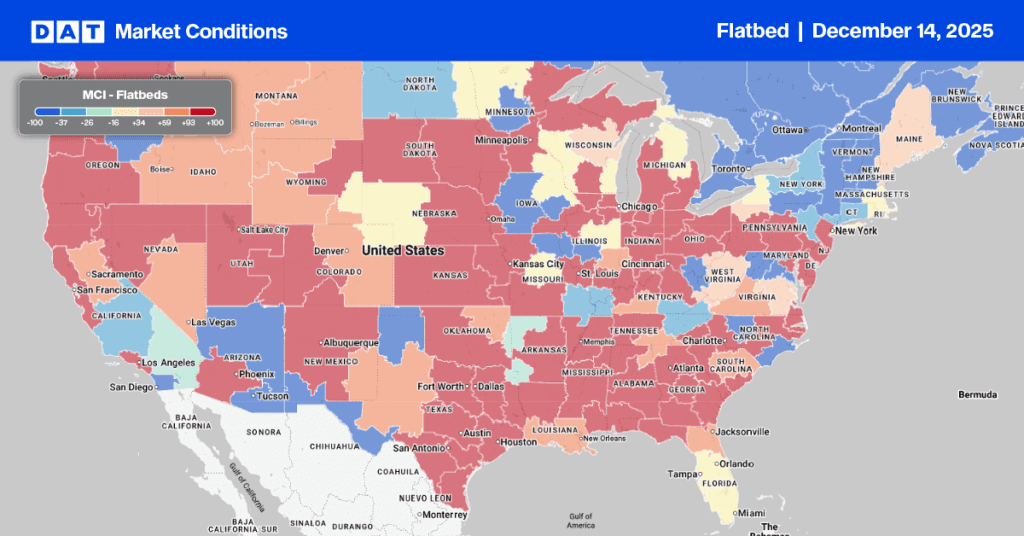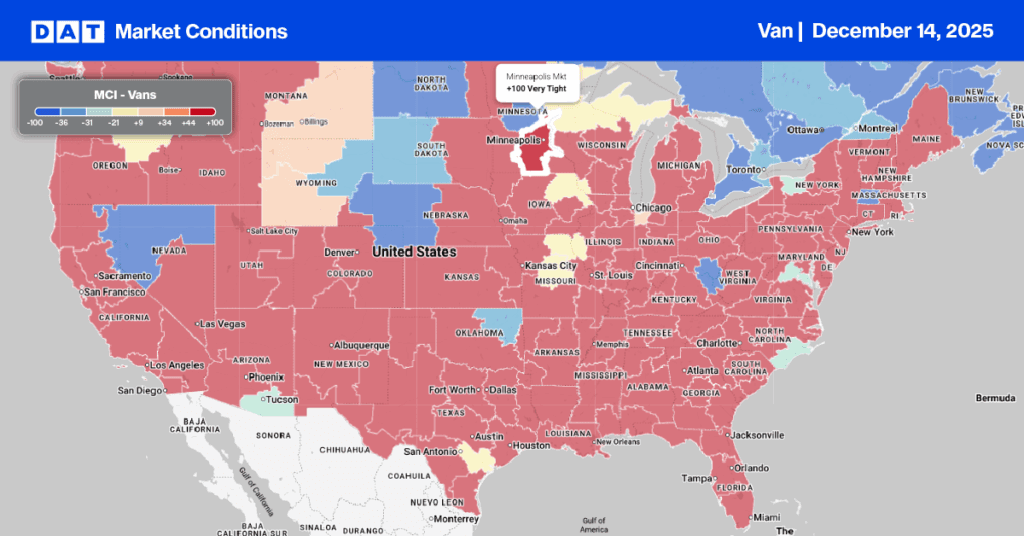Every year the American Trucking Association celebrates the hard work of the 3.6 million professional men and women who not only deliver our goods safely, securely, and on time but also keep our highways safe. Nearly every aspect of daily life is made possible because a truck driver delivers the goods and resources people need. For truckers, it’s a thankless job most of the time and one that keeps them away from families and important social events. That changes this week.
Get the clearest, most accurate view of the truckload marketplace with data from DAT iQ.
Tune into DAT iQ Live, live on YouTube or LinkedIn, 10am ET every Tuesday.
National Truck Driver Appreciation Week is an important time for America to pay respect and thank all professional truck drivers for their hard work and commitment to undertaking one of our economy’s most demanding and essential jobs. For some, it’s the hardest job they’ve ever had, but not because it’s hard to drive a truck. That’s the easy part.
What makes trucking such a hard job?
What makes trucking hard is all the non-driving things a driver has to cope with, including sleep deprivation, loneliness, depression, traffic, inconsiderate road users and the deadly ‘brake check’, unhealthy diets, lack of truck parking, weather, and lengthy delays unloading and loading at shippers and receivers. The list goes on, but you get most of the picture. Drivers will tell you they love their job but hate being away from home, and that’s the dichotomy they face daily.
By its very nature, truck driving sends drivers away from home and family regularly, yet at the same time, every driver wants to be home with family. It’s hard to explain this stress unless you’ve experienced it yourself, but if you haven’t, take it from someone who’s driven over 2 million miles as an over-the-road trucker. It weighs heavily on truckers every minute of the day. Little problems become big problems with too much ‘windscreen time’ without human interaction to balance the internal debate.
Long-haul trucker Mustapha Mike Awada said it best: “You know, a lot of times people see the nice trucks and they see the nice beach vacations that we take our families on but what they don’t see are the birthdays and the holidays and all the time we had to miss. They don’t see the memories that were paid for with time that will just never get back.”
A new study by DAT Freight & Analytics, North America’s largest truckload freight marketplace, shows that truckers overwhelmingly feel that current public sentiment towards them is negative. The study results reveal that 34% of professional truck drivers polled feel disliked or hated, 17% feel mistrusted, and 46% feel the general public has apathetic or neutral feelings towards them.
Remember, a wave goes a long way.
During this year’s National Truck Driver Appreciation Week from September 11-17, 2022, do something different. Next time you see a trucker, give them a wave or say thank you if the opportunity presents itself. A simple wave or smile will make a world of difference. Let them know they’re appreciated. After all, without truckers, the economy would stop in a matter of days. The hard-working men and women behind the wheel safely transport over 10 billion tons of goods and products every year, which accounts for 70% of America’s total annual freight. 80% of U.S. communities depend solely on trucking to deliver goods.
DAT Freight & Analytics is thrilled to take this opportunity to recognize these men and women who show their dedication, perseverance, and determination on our nation’s highways. They ask you to join them and ATA in recognizing our professional truck drivers’ significant contributions to our lives. Their efforts contribute significantly to our quality of life and truly move America forward.
To learn more about how essential the trucking industry is, and for more information on NTDAW 2022, please visit www.ntdaw.org.


